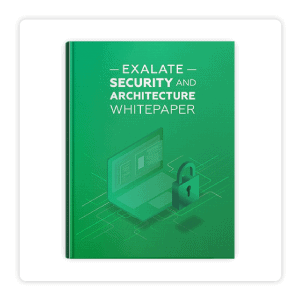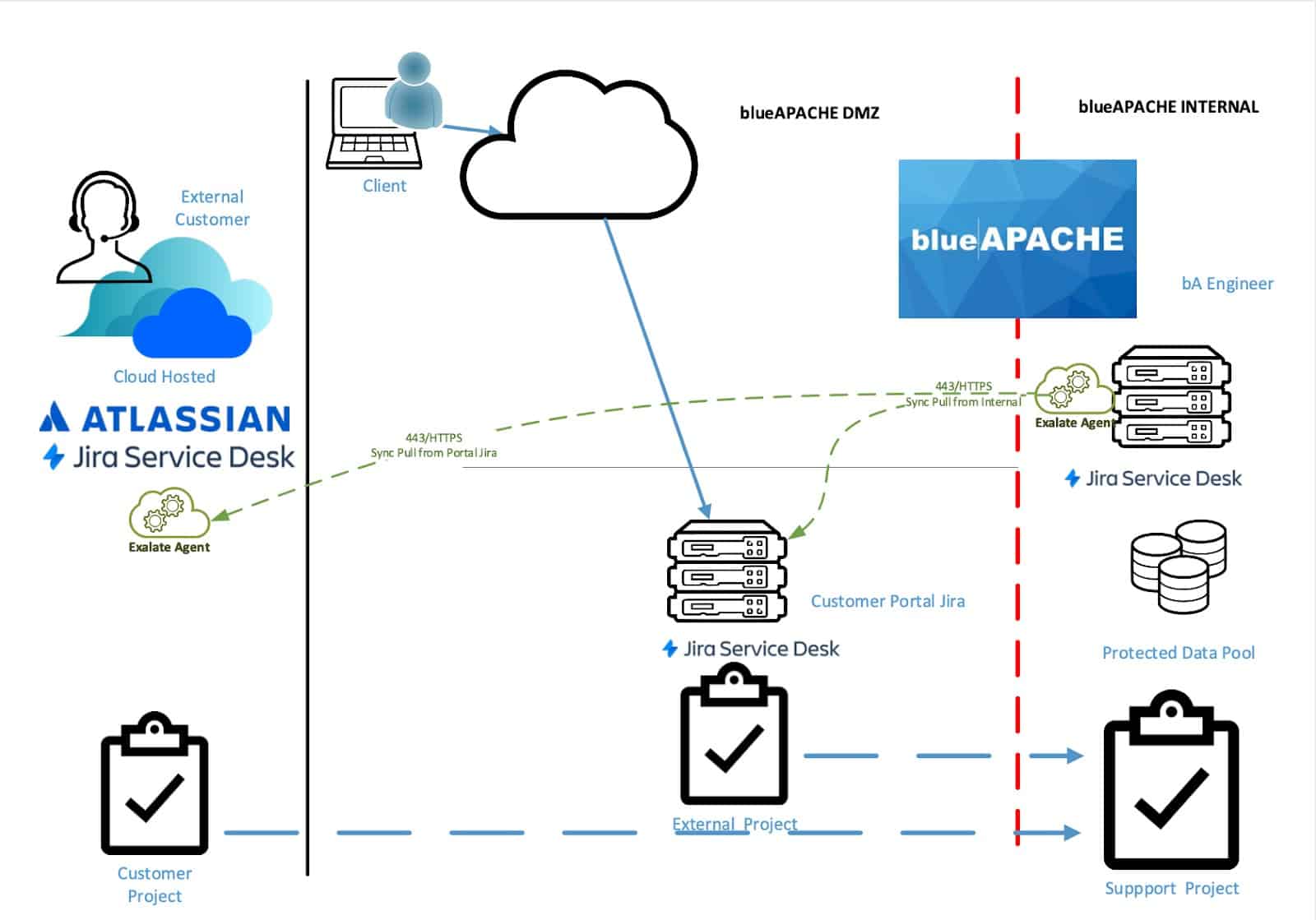How an Innovative Managed Services Provider Uses Exalate as a Competitive Advantage to Integrate with their Clients While Guaranteeing Data Security


Cost optimization
Bulletproof data security and autonomy between systems
Flexibility in the sense of data sharing
Efficient internal and external ticket handling
With 22 years of engineering experience, 200 staff, and a fast-growing pace of around 30% for the last 10 years, blueAPACHE is one of the most significant IT managed services companies in the Australian market today. They support a wide variety of mid-market customers throughout Australia and have thousands of users and servers across 4 continents.
They provide support for a broad range of IT services, professional services, data center, and are a full managed services company. blueAPACHE is also based on the idea that everyone should have secure and efficient access to their systems wherever they are, whenever they want. They aim to enable clients to achieve success, be agile and dynamic, and to support their clients’ communities.
As stated in their portfolio, “By delivering IT as a Service, blueAPACHE has revolutionized the way organizations access technology and communications with affordable solutions that provide true scalability, elasticity, and agility.”
WHY EXALATE?
Guaranteeing data security and system autonomy
Keeping the customer’s data safe in house
Up to 10 times more cost-saving
Efficient ticket handling with about 3000 tickets per month and rising
Optimizing Jira according to security measures and specific requirements
Optimizing the System for a More Secure Collaboration
blueAPACHE used to manage workflows and tickets by its own in-built custom system before choosing to adopt Jira among some other commercially available systems like ServiceNow.
Their security team had set some requirements to meet around the way they protected the data:
- The database should be well protected but without limiting the teams’ flexibility.
- The portal (Jira Service Desk) and the backend (the Server) should be separated as the backend holds all the customers’ critical information.
- The external systems should not be allowed to access the internal ones without them knowing and without jeopardizing autonomy.

As their backend has all their customers’ data, Anthony Mariniello the Solution Architect – Atlassian Stack at blueAPACHE, explains that they’d easily be a target for hackers and bad actors on the internet.
Moreover, they have access not only to their own network but also to a whole bunch of other networks, especially to their customers’. So the matter of data security was of the highest priority when considering an integration solution.
Anthony Mariniello
Solution Architect – Atlassian Stack
On top of that, blueAPACHE also found it easily possible to get third party customer systems to build their own Jira Service Desk with their specific requirements and sync data between the two Jira instances accordingly.

Take a look at what goes under the hood in regards to architecture, security and deployment options for Exalate
Guaranteed Security and Cost Optimization with Exalate
blueAPACHE acquired Jira and Exalate at the same time. And they also used Exalate to address the architecture problems within Jira, which did not segregate the Jira Service Desk portal from the backend.
With Exalate, they could do that by having a separate Server, which would effectively serve the customer facing Jira Service Desk Portal, and a secure backend that was their JSD DB & Application Server. This way, they managed to improve the Atlassian architecture to meet their high security needs.
This was critically important because as a managed services provider, they needed to provide seamless support for their clients and intended to keep their collaboration as flexible and autonomous as possible. This was successfully achieved using Exalate.
So they put all their customers on Jira Cloud while having their own on-premise Jira, both internal and external servers, to keep the critical information intact.
Anthony Mariniello
Solution Architect – Atlassian Stack
And what would you list as Exalate’s most outstanding feature, we asked Anthony:
Anthony Mariniello
Solution Architect – Atlassian Stack
You can see how it all works in a nutshell:

Going Cross-Company
blueAPACHE also implements Exalate where closer collaboration with their customer IT departments is required. Anthony explains:
Anthony Mariniello
Solution Architect – Atlassian Stack
blueAPACHE has implemented this solution for several customers to date and most recently for one of the largest pharmaceutical companies in Australia. blueAPACHE integrate into their system without threatening their autonomy or security thanks to Exalate.
They’re now steadily growing the number of clients who want their own Jira Cloud instance and as the expert, they can provide them with the solution.

Results Recap
- Cost optimization
- Bulletproof data security and autonomy between systems
- Flexibility in the sense of data sharing
- Efficient internal and external ticket handling
As companies grow bigger and their collaboration becomes more extensive, the need to sync data seamlessly becomes more and more inevitable. With the right solution, they can save time, money, and resources and of course enjoy the ease of communication without having to worry about data security. This will all lead to having stronger teams, smoother workflows, and more productivity.
Become an Exalate user and experience an optimized workflow and high productivity. It’s flexible and autonomous enough for almost any sync scenario.